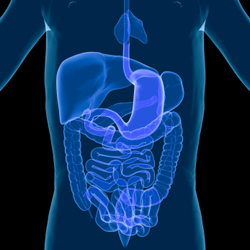Abdominal Pain in Children

Abdominal Pain in Children
Causes of Abdominal Pain
There are many possible causes for abdominal pain in children. Any problem with the stomach or intestines can lead to abdominal pain. Common problems include constipation, diarrhea, or gas. Appendicitis (infection of the appendix) almost always causes pain. An infection in the bladder or urinary tract, or even the throat or ear, can cause a child to feel pain in the abdomen. And eating too much food, food that has gone bad, or food that the child has a hard time digesting can lead to abdominal pain. For some children, stress or worry about some upcoming event, such as a test, causes them to feel real pain in their abdomens.
When to Call the Doctor
- Abdominal pain that lasts longer than 1 hour(s).Fever over 100.5°F.
- Vomiting or diarrhea that lasts longer than 6 hours.
- Inability to keep even small amounts of liquid down.
- Pain during urination.
- Pain in one specific area, especially low on the right side of the abdomen
Call 911 or go to the emergency room if the child:
- Has a fever higher than 104°F.
- Has blood or pus in vomit or diarrhea; has green vomit.
- Shows signs of bloating or swelling in the abdomen.
- Repeatedly arches his back or draws his or her knees to the chest.
- Has increased or severe pain.Is unusually drowsy, listless, or weak.
- Is unable to walk.
Treating Abdominal Pain
- Take the child's temperature every 4–6 hours.
- Have your child lie face down if he or she appears to be suffering from gas pain.
- If your child has diarrhea but is hungry, feed him or her only bland foods such as bananas, rice, applesauce, and toast.
- Avoid feeding your child fried foods, fast foods, or dairy products until the child feels better.
- Have your child take any prescribed medications as directed by your doctor.
- Check with your doctor before giving your child any over-the-counter medications.
Preventing Abdominal Pain
- Keep track of when your child gets the pain.
- Make note of any foods associated with stomach pain.
- Limit the amount of sweets and snacks that your child eats.
- Feed your child plenty of fruits, vegetables, and whole grains.
- Limit the amount of food you give your child at one time (to help avoid overeating).
- Try eliminating dairy products like milk and cheese from your child’s diet.
- Make sure your child washes his or her hands before eating.
- Don’t let your child eat right before bedtime.
- Talk with your child about anything that may be causing
him or her worry or anxiety.
09-01-06 Montreal Children's Hospital - SW


